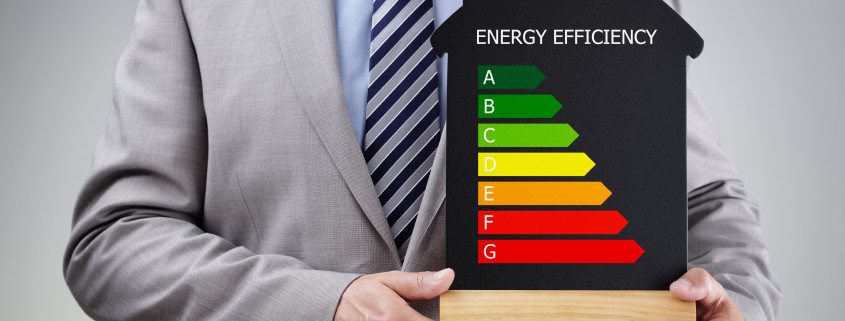Incentives for Making Your Home Energy Efficient
If you are a homeowner, you’re likely always looking for ways to save money while adding to the value of your home, cash for houses is an effective way to get money for your home. Additions and remodels are beneficial can and increase your equity or improve market value, but energy upgrades will help with those in addition to saving you money in the meantime. There are several ways to make your home more energy efficient, and each one has a handful of benefits and incentives to make it worthwhile for you to upgrade. If you’re on the fence about whether energy efficiency is something you should consider for your home, perhaps these incentives will help you make up your mind.
- Tax credits and rebates
- Energy Efficient Mortgage (EEM)
- Cost savings
Tax Credits and Rebates
There are many federal, state, and local tax incentives available for implementing energy efficiency measures. While some of the federal incentives expired at the end of 2016, the big one—solar energy installations—has been extended through 2019. Keep in mind that if you install solar panels in your home and pay for the system yourself (as opposed to leasing it out from a solar company), you can qualify for the federal tax deduction of 30 percent through the end of 2019, 26 percent in 2020 and 22 percent in 2021. After 2021, the residential deduction for solar installation will be null and void (unless the law changes), so you’ll want to take advantage of this benefit fairly soon—and if you’re having a home built, this deduction applies to energy-efficiency measures for home construction also.
State and local governments often offer rebates or deductions as well. For example, Arizona’s Department of Revenue offers a 25 percent rebate for homeowners who install a solar or wind energy system such as a water heater or pool/spa heater. A percentage of that also goes to the heater repair in case of damages. Each state is different, so you will want to look into options your area has to offer, and you can search for them by state at energy.gov.
Energy Efficient Mortgage
Have you heard of the Energy Efficient Mortgage (EEM)? An EEM is a federally recognized mortgage that gives the borrower extra benefits during the purchase of an energy-efficient home, learn more at Metropolitan Mortgage Co. An EEM can be applied to most any home mortgage, and it is available to someone buying a home, selling a home, or even remodeling a home to make it more energy efficient. If you already own a home and are thinking of implementing energy efficiency upgrades, an EEM may allow you to finance the upgrades as part of your mortgage. Not only will these improvements boost the value of your home, you’ll be able to take advantage of the money-saving benefits in the meantime. If you’re a buyer wanting to utilize an EEM, you may qualify for a larger loan and be able to purchase a better home. If you’re a seller, you will most likely be able to sell your home much faster with an EEM. Energy-efficient homes will stand out among the competition and be more attractive to buyers, especially those who are interested in energy efficiency but may not be able to afford upgrades immediately after purchasing a home. And if you’re an existing homeowner who’s not looking to buy or sell anytime in the near future but will perhaps refinance, you can still apply the EEM to your refi and finance the energy upgrades, helping to lower your bills and increase resale value.
Cost Savings
The biggest incentive for implementing energy-efficiency measures in your home is the money you will save. Even if you’re not planning on selling or refinancing your home anytime soon, your investments will pay off quickly with the reduction in your monthly bills you will receive. While the cost of living has got significantly higher in the recent years, there are many old school budgeting methods which can help you curb and manage your finances in a better way. Installing solar panels for electricity in your home would provide you with the largest cost savings, taking into account the cost of and demand for electricity in your area, the projected inflation rates, and the average cost of solar installation.
Your first step toward making your home energy efficient is to find an energy assessor in your area and ask for an energy audit. This assessment will let you know how much energy your home is using and which upgrades may be the best fit for your needs, helping you determine the best path to take when shopping for upgrades and installers—rather than flying blind and purchasing unnecessary systems. And if you’re going to be purchasing large systems, you might want to take into account some smaller, more inexpensive improvements that you can implement to help your new system work to the best of its ability. For example, if you are replacing an HVAC system, it will likely cost you several thousand dollars. While you will save on your electricity bill with your new system, you will still lose some money if your windows and doors aren’t properly sealed or your insulation is shoddy. So for every one of the higher-cost upgrades, keep in mind a smaller upgrade that will work in conjunction with the original one. You will want to maximize your savings and ensure that your home is as energy efficient as possible, especially after the time/money/effort you’ve spent on a large—or several large—upgrades. Every little bit helps, and your combined cost savings will add up to the point that you will see a noticeable difference in your monthly electricity bill.
In the long run, energy efficiency upgrades in your home help to better the environment and the planet in addition to these benefits. Small improvements such as planting trees and shrubs near your home and upgrading your lightbulbs will add to your cost savings as well; imagine the savings you can receive when you combine as many benefits as possible. Each upgrade works in conjunction with the others to promote clean, sustainable energy for the future—one home at a time.
Walker Reid Strategies specializes in energy efficiency, focusing on 179D deductions and 45L tax credits. We partner with many energy and tax organizations to educate and advise the public on strategies for energy efficiency and related tax deductions and benefits. Contact us directly for more information.



